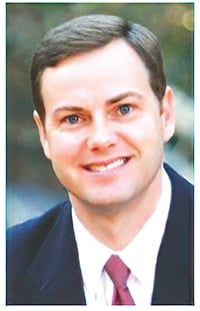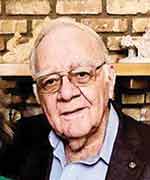Hug a veteran
 By Tony Farkas
By Tony Farkas
This email address is being protected from spambots. You need JavaScript enabled to view it.
Way back in the day, something along the lines of 30-ish years ago, I was a pup learning the editor trade at a small Eastern New Mexico daily.
After a meeting with my boss one day, he tasks me to write an editorial about Veterans Day. Since I had never written such a thing before, I countered with my best puzzled/frightened look.
My editor saw this and offered a bit of advice: “If it helps, we’re for it.”
It didn’t help, mostly because I already was for it. I plugged away and was able to toss out a respectable piece, and that ended up running in the three newspapers that were part of the group.
Flash-forward 30-some-odd years, and I’m still for it, and I’m betting most if not all of you are as well.
My father, who still lives in Eastern New Mexico, is a veteran, having served 20 years in the Air Force. His brother served in the Navy, and currently is buried in Arlington National Cemetery.
My mother worked in numerous capacities with the military, and even became the first civilian leader of a Social Actions office at the air base. Myself, I was 17 years a dependent, meaning I followed a lot of the same rules (I actually told my dad that because of that, I already served, and didn’t want to enlist. There were other reasons, but that’s not important right now).
One of the things our government mostly gets right is creating a military to protect us from enemies. I say mostly, since one of the government’s enumerated powers is to raise and maintain a military force, but most would agree that not every one of their uses in the last 246 years has been sensible (again, an argument for another time).
The making of the military as one that is for the most part all voluntary is an exceptional development, and even though when the need arose, our fearless leaders (RE**s, as the lingo was) instituted a draft, and to this day, 18-year-old males still are required to register with Selective Service.
But that is for dire circumstances. The volunteers, and even those who were drafted, that served our nation right or wrong deserve all respect.
Imagine the dedication and even love of family and country that was necessary to enter military service. While the idea of free or mostly free food, lodging and later education, retirement, life insurance and medical care may have been the motivating factor, it was a decision born of love, since at any time the military will be called in to conflict.
Even today, deployments overseas into Asia, the Middle East, and Europe have these heroes away from family and country, serving the country despite the risks — death, pain, maiming, PTSD, all manner of maladies notwithstanding.
I have been enchanted to see that in the last few years appreciation for the military has grown, given that after Vietnam, the military was vilified. Even then, though, they served.
Now that they’re home, they continue to serve their communities through charitable endeavors. So on Friday, raise a flag, salute your friends who served, and be thankful they sacrificed to keep our way of life safe.
- Hits: 466



 By Horace McQueen
By Horace McQueen

